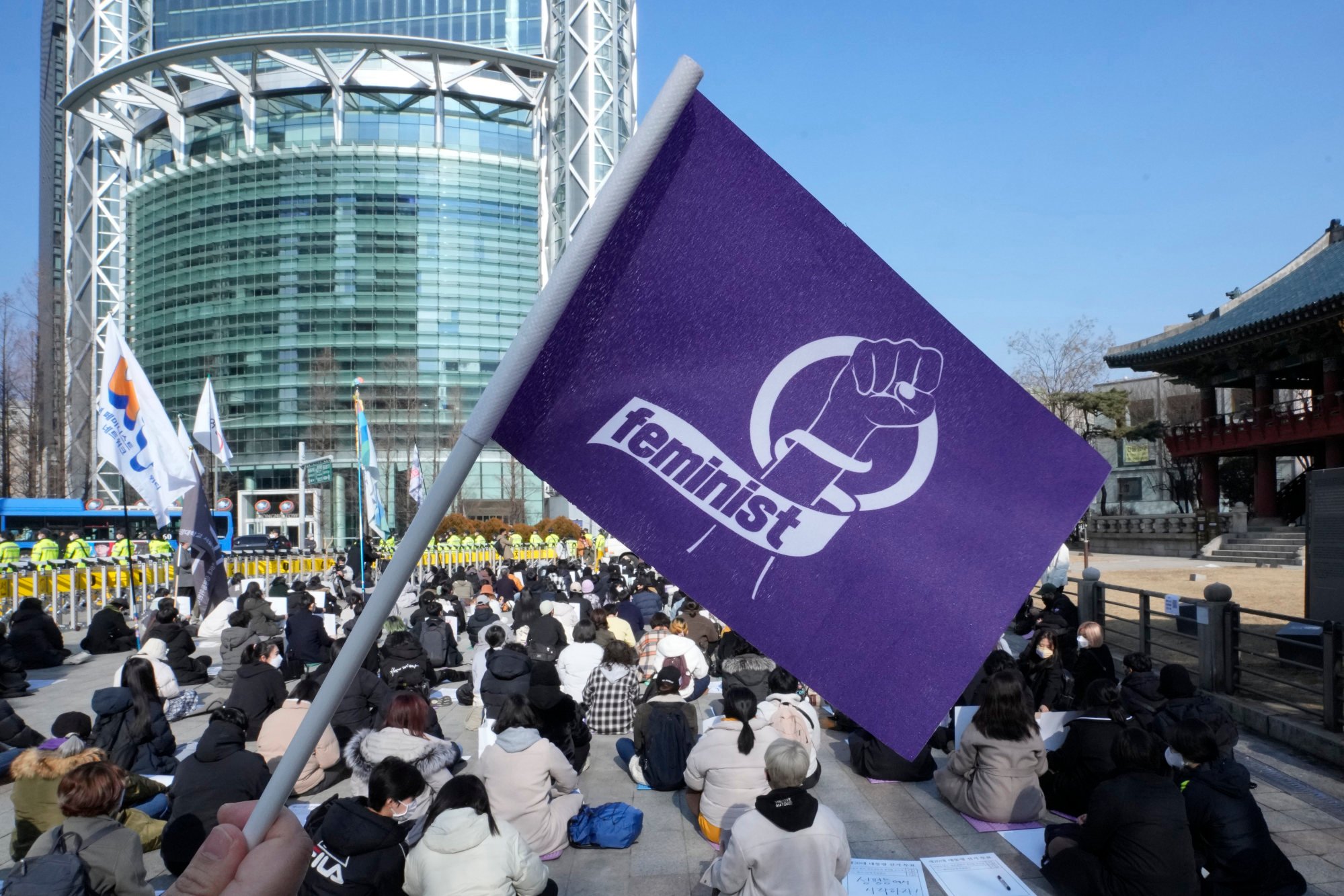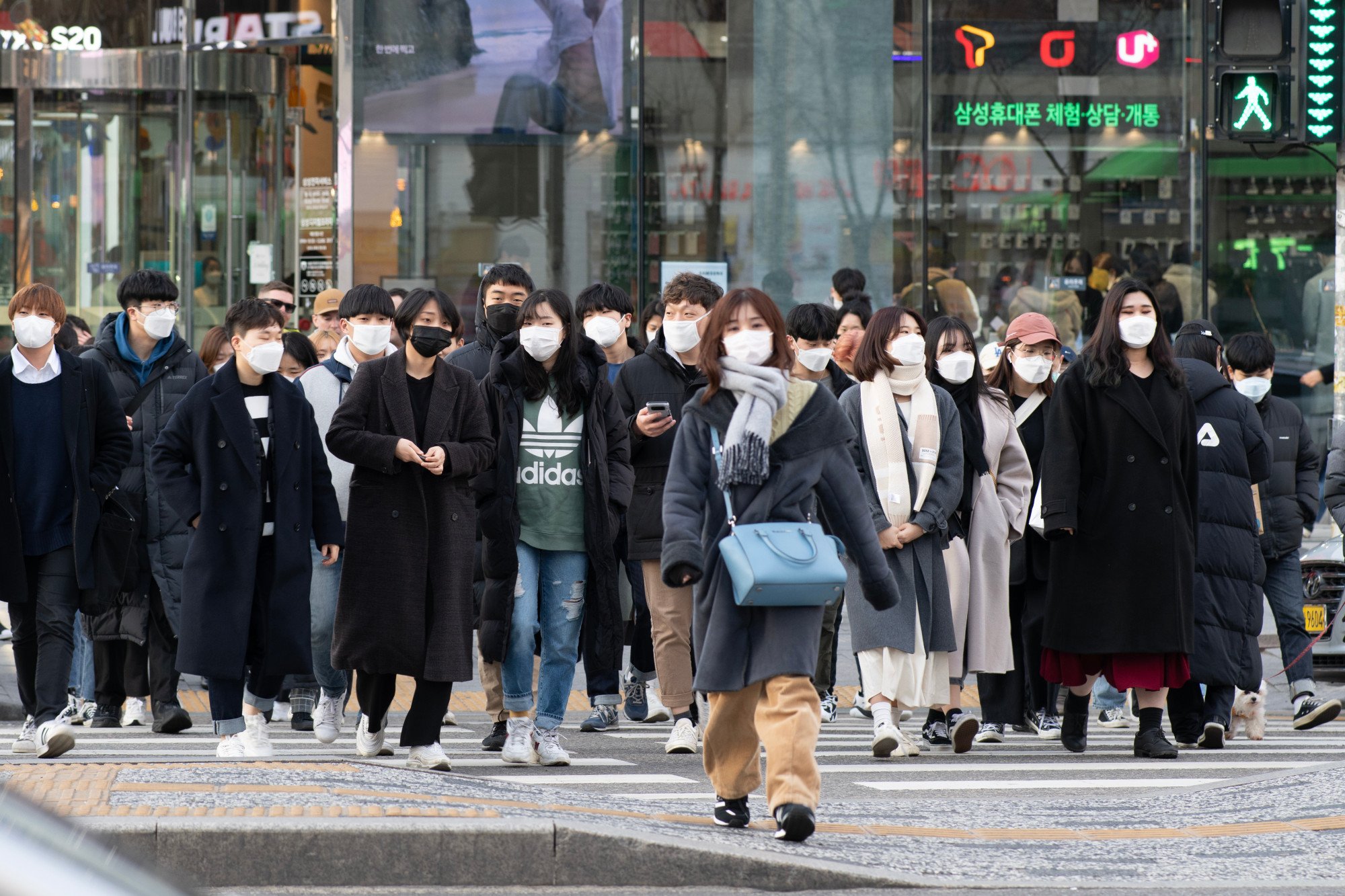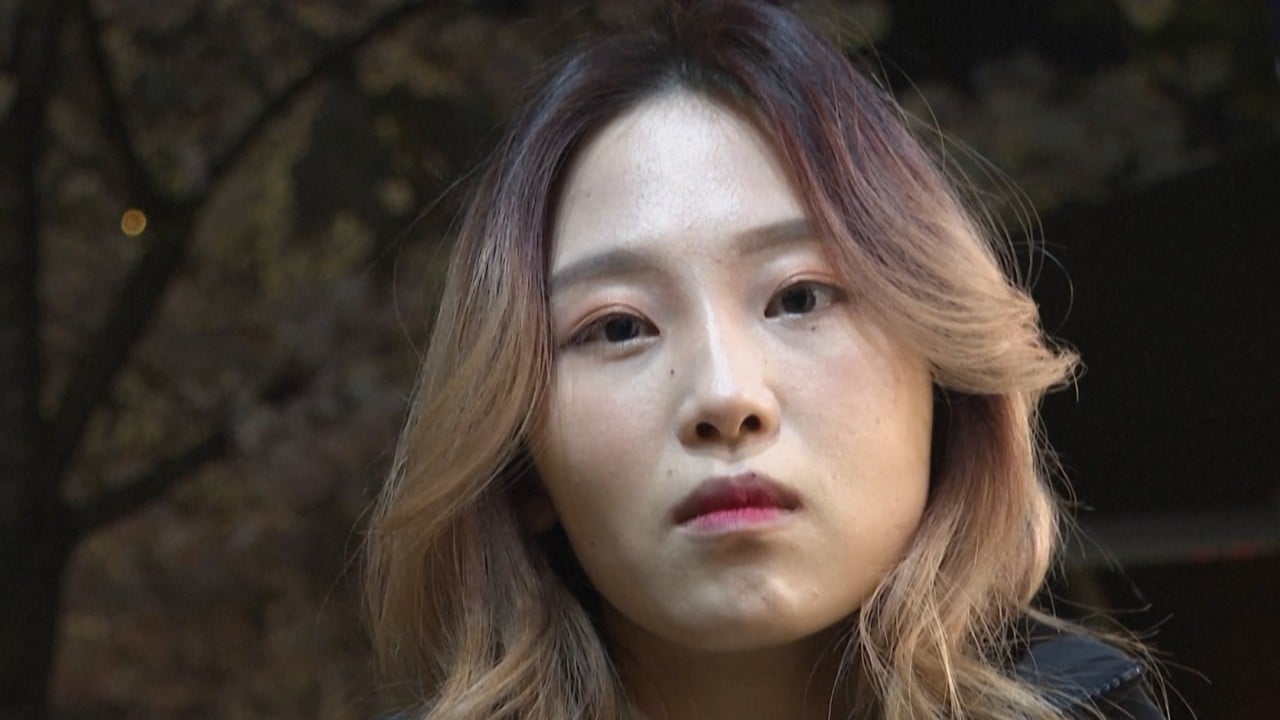In South Korea, short-haired women are harassed as ‘antifeminist’ movement grows
[ad_1]
A few weeks ago, South Korean middle school student Lee witnessed a friend with short hair getting harassed by a group of male teenagers on a bus in Yongin city.
“We were sitting on the bus on our way home. They approached her, giggling and said: ‘Are you a feminist?’” Lee said, requesting to be known by her surname. “She then moved to the door to get some distance from them, but they followed her, and tapped her on the hands as if they were forcing her to let go of the bus grab handles she was holding.”
Lee and her friend found the situation intimidating, but nobody around them said anything or tried to intervene. Lee said she heard the boys using terms she could not understand, which she assumed are widely used in male-dominated online communities.

The cases of Lee and Kim bear similarity with a recent late-night assault by a man in his 20s against a short-haired woman working at a convenience store. The attacker identified himself as a member of the antifeminist Man on Solidarity group, and roughed up the victim on the assumption that her short hair meant she was a feminist, who he believed “deserves to be assaulted”.
‘MeToo is when men don’t pay’: South Korean presidential candidate’s wife
‘MeToo is when men don’t pay’: South Korean presidential candidate’s wife
Led by Bae In-gyu, also known among his followers as Wangja, or prince in Korean, the group gained international media attention for actively waging antifeminist rallies next to female activists a few years ago. They call for the abolition of the gender ministry and argue that feminism threatens men’s rights in violent and hateful ways and encourages misandry, or hatred of men.

On June 16 last year, the White House launched a task force to address online harassment and abuse to “produce recommendations for the Federal government, state governments, technology platforms, schools, and other public and private entities to prevent and address technology-facilitated gender-based violence, including a focus on the nexus between online misogyny and radicalisation to violence”.
The task force connected recent mass shootings with online harassment, hate, misogyny and extremist acts. The US Secret Service’s annual report, Mass Attacks in Public Spaces, noted that “special focus should be given to assessing threats and preventing violence related to ‘men who use digital platforms to voice misogynistic views and general animosity towards women’.”
Jointly with the US offices of education and the National Institute of Health, the task force is paving the way to prevent online harassment and hate speech from fuelling actual violence and disconnecting the link between the two, she said.
Considering the growing online harassment and a recent series of assaults targeting women, Jung believes South Korea needs a similar initiative.
“It is yet unknown how such online harassment and hatred against women leads to assaults in real life in Korea. Although the male-dominated online communities here are not exactly like the ‘manosphere’ and incel community of the US, they share certain similarities,” Jung said.
“Considering the chain of events that happened in Korea, I believe we need to take into account the research done in the US.”
[ad_2]
Source link


